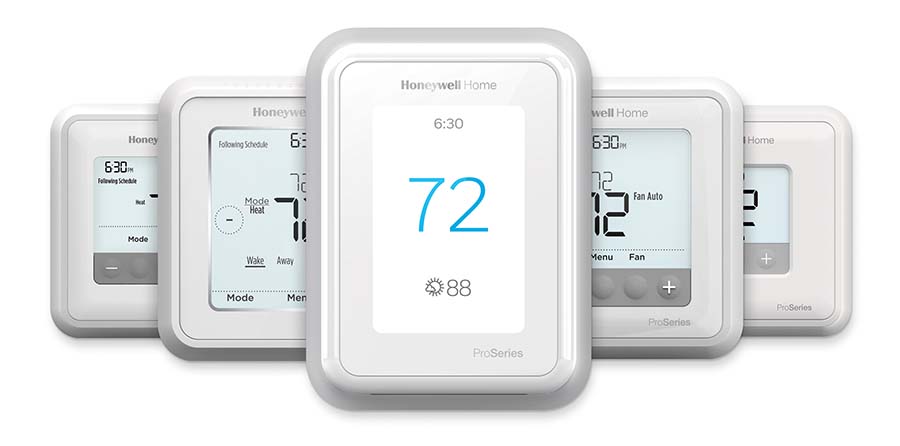While it seems like everyone is making their homes smarter these days, the field remains in its early adopter stage. As HVAC contractors can attest, awareness and interest are growing. More and more homeowners want smart thermostats. Some are even showing interest in smart devices such as leak detectors, which could help grow the hydronics market. Still, many consumers remain hesitant to make a major commitment. One of the biggest hurdles is the lack of a standard for these devices.
That’s about to change. Many of the largest tech companies in the world — including Apple, Amazon, and Google — put their weight behind the Connectivity Standards Alliance (CSA) to create a standard for home connectivity. That standard, known as Matter, is set to roll out later this year.
Matter will allow devices from different manufacturers to operate on the same platform. The current situation of each platform having its own requirements — the so-called “walled gardens” — both hinders development and frustrates consumers, said Daniel Moneta, product marketing manager for smart home ecosystems at Google. Moneta also serves on several committees for CSA.
Moneta said one major concern among consumers today is investing in a smart home product only to find it incompatible with their other devices or with devices they might buy in the future. Twelve percent of consumers who do not own or intend to purchase smart home devices report confusion about how to set up and use the device, according to a report by Parks Associates. The report recommends that uniformity in the setup process across device types and brands can help drive consumer confidence to adopt new products.
That’s the goal of Matter. It will also help the development process, Moneta said. Currently, developers have to create different versions of their products to work with different smart home ecosystems. With Matter, developers will be able to put those resources toward creating better products.
“The cost of entry for users and the cost of development for developers is just way too high,” Moneta said. “(Matter is) really going to open up choice for consumers and innovation for developers.”
Over the Garden Wall
Matter is royalty free, but remains a proprietary system. That means CSA licenses the specification to developers. Moneta said the Association is open to any company that wants to join the effort to create a standard.
“The biggest determinant of what features and devices Matter is going to support is who shows up and puts resources into that,” he said. “We’re really welcoming everybody with open arms.”
Resideo Technologies Inc. is one of the companies active with CSA, holding a seat on the board of directors. Dave Kaufman, Resideo’s director of strategic initiatives, said the company is committed to using open standards. Resideo’s engineers sit on various Matter subcommittees, including finalizing the specification that will serve as the basis for the final source code.

STANDARD TIME: Resideo is one of the companies involved in developing the Matter standard. (File photo)
“Matter is the industry's opportunity to improve interoperability and break down the consumer confusion caused by ‘walled garden’ ecosystems,” Kaufman said. “With the ability for all solutions to seamlessly communicate, we’ve removed one roadblock to adoption.”
He uses the example of a contractor installing Resideo’s Honeywell Home smart thermostat equipped with the Matter spec. After installation, the contractor will be able to guide the homeowner to easily integrate with many more Matter-compatible products. Not being able to do that easily may hinder adoption of another type of product, Kaufman said.
Resideo management intends to support Matter in future products, Kaufman said, but are not discussing specifics at this time. The company will offer additional ways for users to access the devices outside of the Matter protocol.
Improved Security for Smart Devices
Security concerns present another main challenge to expanding smart home adaptation. A survey by Trusted Future and the National Security Institute found there is a major technology trust gap among consumers, with most believing there ought to be a higher level of security for online data than exists today. Kaufman said Matter will deploy state-of-the-art security standards to help ensure privacy of information or data transmitted in Matter-based communications.
Just breaking down the “walled gardens” will help, Moneta said. If a security issue arises, the entire Matter community will work to solve it, rather than just one provider. Also, a simplified system means less chance for human error.
“It’s really meant to be robust and to eliminate a lot of those security failure points, such as having a whole lot of different accounts and linking them together,” Moneta said.
At this time, Matter is somewhat limited in the devices it can connect. So a smart thermostat and a smart window system can work together to reduce heat at certain times of the day. Appliances aren’t supported as of yet, but someday soon, a smart thermostat and a smart oven could coordinate in the same way.
ABI Research forecasts that more than 5.5 billion Matter-compliant smart home devices will ship by the end of the decade. But one of the most appealing aspect of the Matter standard is that it’s retroactive. Consumers won’t have to buy all new devices. The existing devices will seamlessly upgrade.
“Day one, your house is going to be enabled with Matter,” Moneta said.


Report Abusive Comment